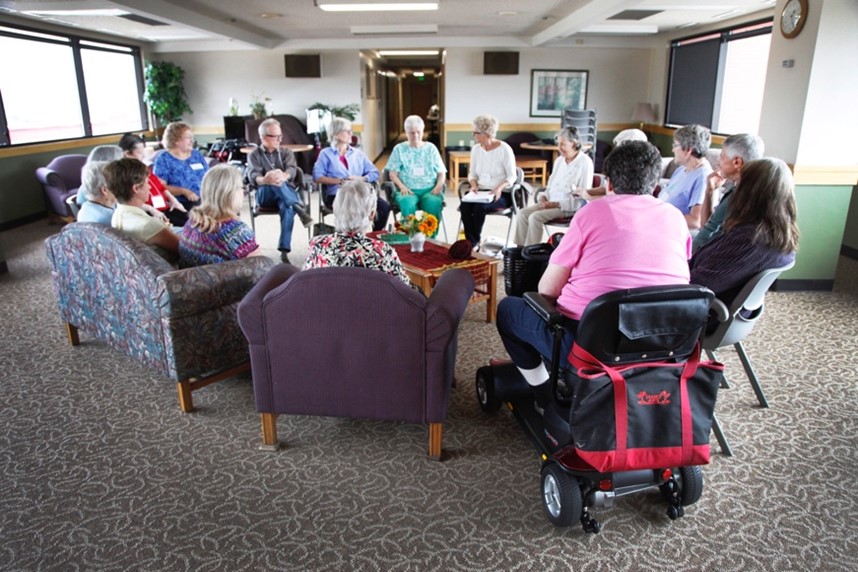In May 2023, The US Surgeon General released a report officially declaring loneliness as an epidemic in America, with effects as bad as smoking 15 cigarettes a day.
What is the ‘loneliness epidemic?’
This refers to the alarmingly high rates of social isolation reported by seniors. Feelings of isolation can stem from loneliness, depression, or social anxiety, and are closely correlated with rapid mental and physical decline.
Many senior residences believe they are doing what is needed to address this “outsider syndrome.” Residents are surrounded by people their age, supported in daily life by staff members, and provided many opportunities to participate in activities and programming. These ‘recreation opportunities’ offered to residences commonly include bingo, puzzles, painting, games, social gatherings and trips; all activities geared to provide mental stimulation. So, despite these efforts, how is it that loneliness and depression still persist at such high rates?
It seems that the current norm is not working. According to a study published in the Journal of Aging Studies**, residents averaged less than 2 minutes of voluntary interaction with staff or other residents within a 6-hour period. This same study found that as many as 45% of residents with dementia chose not to attend any of the scheduled events in their residence. Maybe our current solutions for offering social wellness support to seniors are focused on the wrong things.
Games, puzzles, and bingo are all fun ways to pass the time, but they miss out on an element crucial to the wellbeing of any human: connection. While these activities may keep one entertained (and could offer a social experience), they typically do not provide any level of emotional wellbeing, person-to-person connection or sense of belonging. At CircleTalk we call this side-by-side nature of an activity or interaction ‘parallel play.’
There is another way to engage people with each other with meaning and purpose. At CircleTalk we set the stage for engagement in a structured way and let human nature take over so that our hour together is characterized by deep, person-to-person connection. Subsequently, we will build a strong and lasting community, and a safe place to for residents of senior communities to speak honestly about their lives.
As the call has gone out through the Journal of Aging Studies*, we are joining the “social revolution in residential care”.
“The need for a social revolution in residential care,” Theurer et al. 2015.

